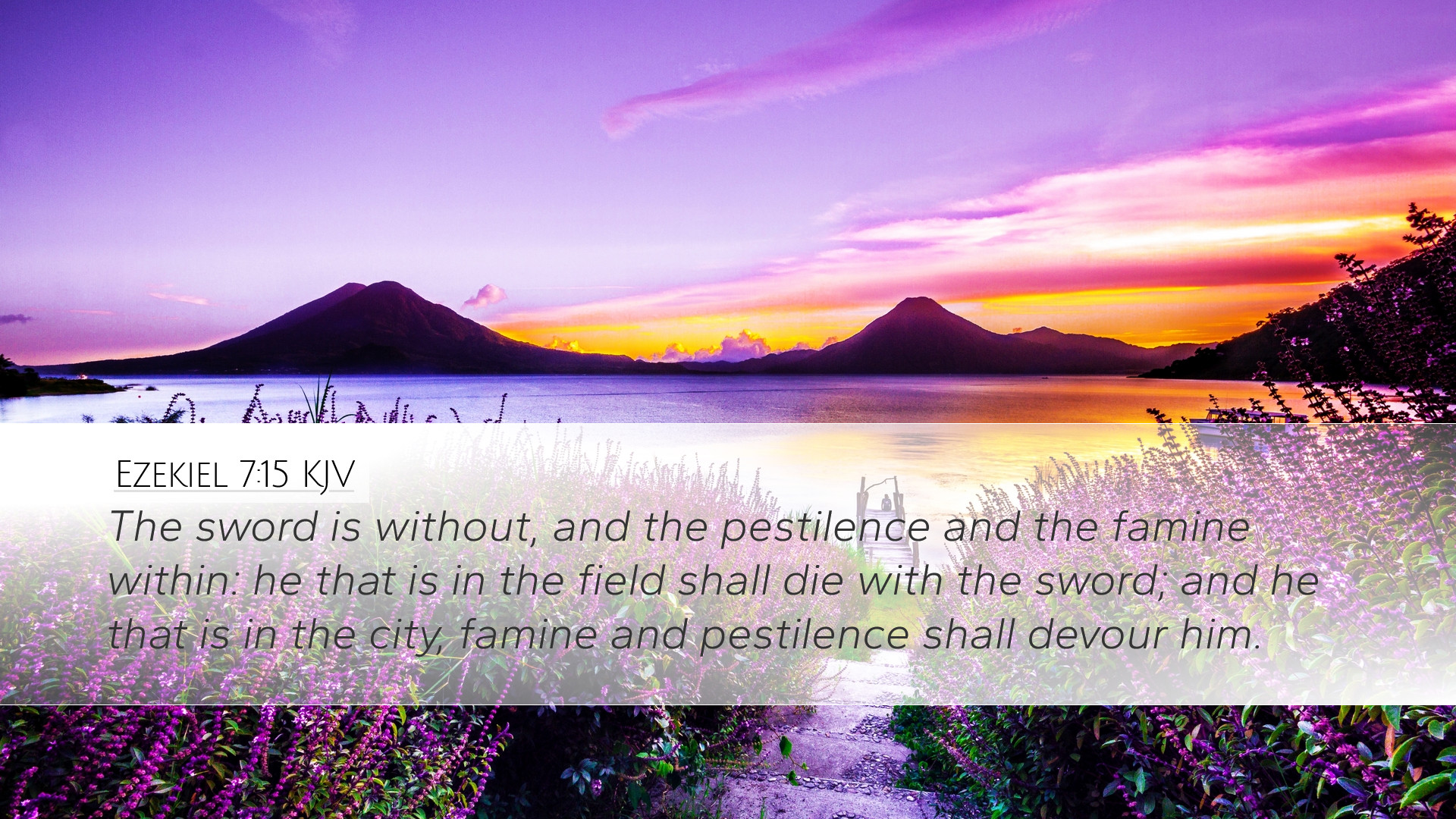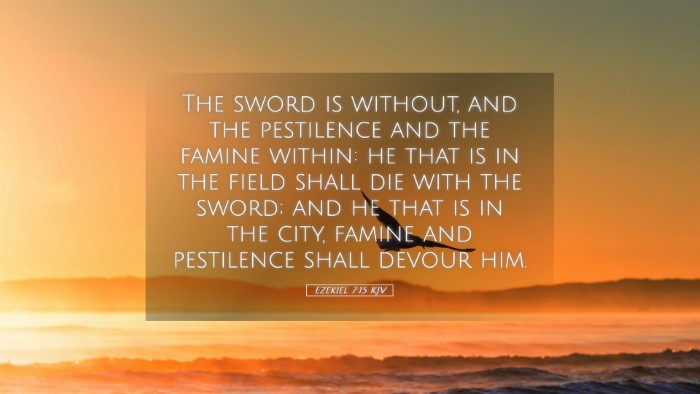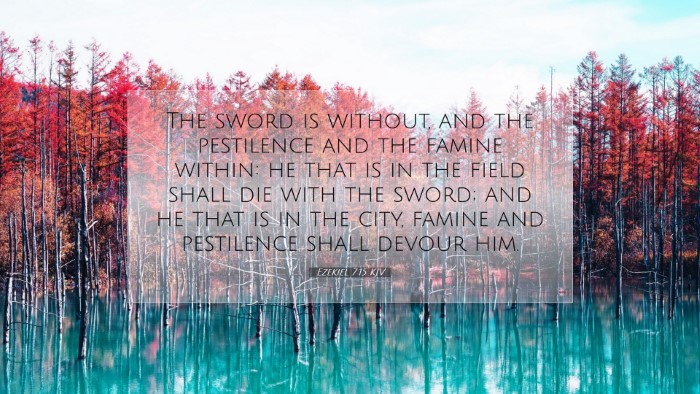Ezekiel 7:15 Commentary
Bible Verse: "The sword is without, and the pestilence and famine within: he that is in the field shall die with the sword; and he that is in the city, famine and pestilence shall devour him." (Ezekiel 7:15, KJV)
Introduction
The prophecy of Ezekiel 7:15 introduces a harrowing vision of devastation befalling Jerusalem. This verse succinctly captures the dual threat to life: external warfare and internal strife caused by famine and disease. Understanding this passage necessitates diving deeply into the socio-historical context of Ezekiel's ministry and the theological implications of God's judgments.
Contextual Background
Ezekiel, a prophet during the Babylonian exile, spoke to a people grappling with despair and uncertainty. The backdrop of his prophetic declarations is marked by the impending judgment on Judah due to rampant idolatry and social injustices. This verse crystallizes the imminent calamity that will arise as a direct consequence of Israel's unfaithfulness to Yahweh.
Analysis of the Elements in the Verse
- The Sword: Represents invasion, violence, and judgment from outside forces, symbolizing God's wrath manifesting through Babylonian aggression.
- Pestilence and Famine: Indicate the effects of divine judgment that plague the city, illustrating the comprehensive nature of the calamity.
- Field vs. City: Suggests a distinction in the fate of those in rural versus urban environments, highlighting that nowhere is safe from God's judgment.
Commentary Insights
Insights from Matthew Henry
Henry emphasizes that the threats depicted in this verse are indeed inevitable consequences of Judah's failure to return to the Lord. He elucidates how both external and internal afflictions serve to demonstrate God's righteous judgment. The "sword" implies that while some may attempt to escape to the countryside, they will find no refuge, illustrating the inescapable nature of divine justice.
Insights from Albert Barnes
Barnes highlights the vivid imagery used by Ezekiel to portray the severity of the judgments. He points out that mention of the sword and famine serves to reassure the audience of the certainty and clarity of God's intentions. This duality emphasizes that those involved in war conflict (the field) and those within city walls face equal judgment, implying a comprehensive divine decree that is unavoidable.
Insights from Adam Clarke
Clarke elaborates on the societal context of the verse, pointing out that the city, besieged by famine and disease, is a metaphor for spiritual desolation. He connects these afflictions to the principles of divine retribution, where the moral state of the people reflects the natural consequences they faced. Clarke argues that the devastation serves as both judgment and a call towards repentance, underscoring God's desire for the restoration of His people.
Theological Implications
This verse presents several vital theological implications for modern readers:
- God's Sovereignty: The combination of symptoms of judgment serves as a reminder of God's absolute authority over nations and individuals alike.
- Justice and Retribution: The inevitability of the judgment reflects God's justice, emphasizing that unfaithfulness cannot be overlooked.
- Call to Repentance: Amidst the dire prophetic proclamations, there exists an intrinsic call to turn back to God and seek restoration.
Practical Applications
For pastors, students, theologians, and scholars, the implications of Ezekiel 7:15 are profound:
- Understanding Judgment: This scripture serves as a lens through which to view God's judgment throughout history and in our present age, reminding leaders and congregants of the necessity of aligning with God’s moral expectations.
- Empathy for the Afflicted: The dual nature of the threats faced by both the rural and urban areas speaks to the pastoral heart, advocating for compassion towards those suffering under dire circumstances.
- Encouragement to Preach Holiness: The necessity of repentance highlighted in this passage can serve as a powerful message in sermons, emphasizing that turning to God is essential for revival and healing.
Conclusion
Ezekiel 7:15 stands as a poignant reminder of the consequences of sin and the unrelenting nature of divine judgment. By combining insights from notable commentaries, we enhance our understanding of both the immediate context and broader theological implications. The verse calls us towards meaningful self-examination and a deeper commitment to spiritual integrity, reminding us that God's judgments, while severe, aim ultimately towards the possibility of restoration and renewal.


